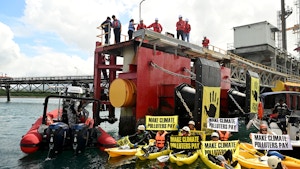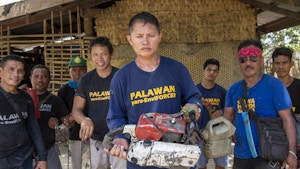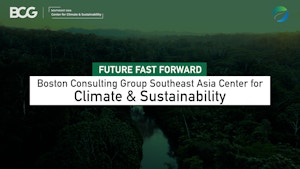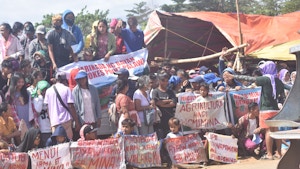政策和金融 新闻

Despite slowing GDP growth, coal consumption is on the up, largely due to a failure to improve energy efficiency.

The UK government has reclassified nearly £500m of aid for war-torn and impoverished countries as “climate finance”, in a bid to meet its international commitments under the Paris Agreement.

Kuala Selat village lies on the coast of Indragiri Hilir district on the Indonesian island of Sumatra. In the first half of the year, residents of the village arrange buckets and drums to collect rainwater to meet their daily needs. They will then stockpile water to last through the dry months from June to September, but a longer dry spell has led to an acute shortage of water.

European lawmakers have backed plans for the EU to exit a treaty that lets fossil fuel firms sue when climate policies hit profits.
政策和金融 观点

As the only multilateral institution charged with maintaining global financial and fiscal stability, the IMF’s role is critical for addressing climate change.

To restore Earth’s stability, governments must recognise the need to respect the nine planetary boundaries. This requires a steadfast commitment to reducing greenhouse-gas emissions and protecting biodiversity and water resources.

New research by the International Rescue Committee (IRC) shows that disbursing International Development Association (IDA) funds to projects that positively affect people’s lives must overcome major barriers.

Air pollution is a 'silent killer', say former New Zealand PM and former WHO chief scientist.
政策和金融 视频

The action comes despite the oil giant suing the environmental group for US$2.1 million after demonstrators boarded the company’s vessel at the Atlantic Ocean in January.

The veteran journalist talks to Eco-Business about how his Emmy-nominated documentary depicts the lives of environmental crusaders in Asia's deadliest country for guardians of the seas and forests.

EB工作室
Asia's green transition pathways need to be socially inclusive given huge differences in economic development across the region, says experts at the Boston Consulting Group. State-owned enterprises have an "outsized" role to play, they add.

Video footage appears to show protestors, who were demonstrating against mining operations, being dragged away by police near Ipilan Nickel Mine in Brooke’s Point, Palawan. Mining insiders are calling for maximum tolerance in similar standoffs.
政策和金融 播客

Asia lags the world in natural catastrophe protection. Part of the problem could be counting extreme weather losses only after they happen, industry insiders tell the Eco-Business podcast.

The oil and gas sector needs to cut operational emissions faster, Charlotte Wolff-Bye tells the Eco-Business podcast. But slashing fuel output won’t do for the Asian supplier, and it welcomes respectful debate at the climate summit.

政策和金融
‘Never give in to fear’: Nobel peace prize nominee and Filipino Indigenous leader Vicky Tauli Corpuz
In celebration of Indigenous Peoples' month in the Philippines, the former United Nations special rapporteur tells the Eco-Business Podcast about her lifelong work to empower communities in Asia’s most dangerous country for environmental defenders.

The Bangko Sentral ng Pilipinas assistant governor tells the Eco-Business Podcast about the regulator’s maiden sustainability report that features an empirical study of climate impacts on banks as well as the nation’s first taxonomy.
政策和金融 新闻发布稿

United Nations Environment Programme
Not yet built for purpose: Global building sector emissions still high and rising

United Nations Environment Programme (UNEP)
World squanders over 1 billion meals a day: UN report

Asian Development Bank
ADB forecasts developing Asia’s economy to grow 4.9 per cent in 2024

United Nations Economic and Social Commission for Asia and the Pacific (ESCAP)
Costs on the rise and volatile, but trade facilitation could mitigate challenges ahead
政策和金融 研究

Plastic Credit Exchange (PCX)
How plastic credits are supporting the Global Plastics Treaty

MioTech
ChatGPT on financial reporting

MioTech
Are EVs meeting ESG standards?















